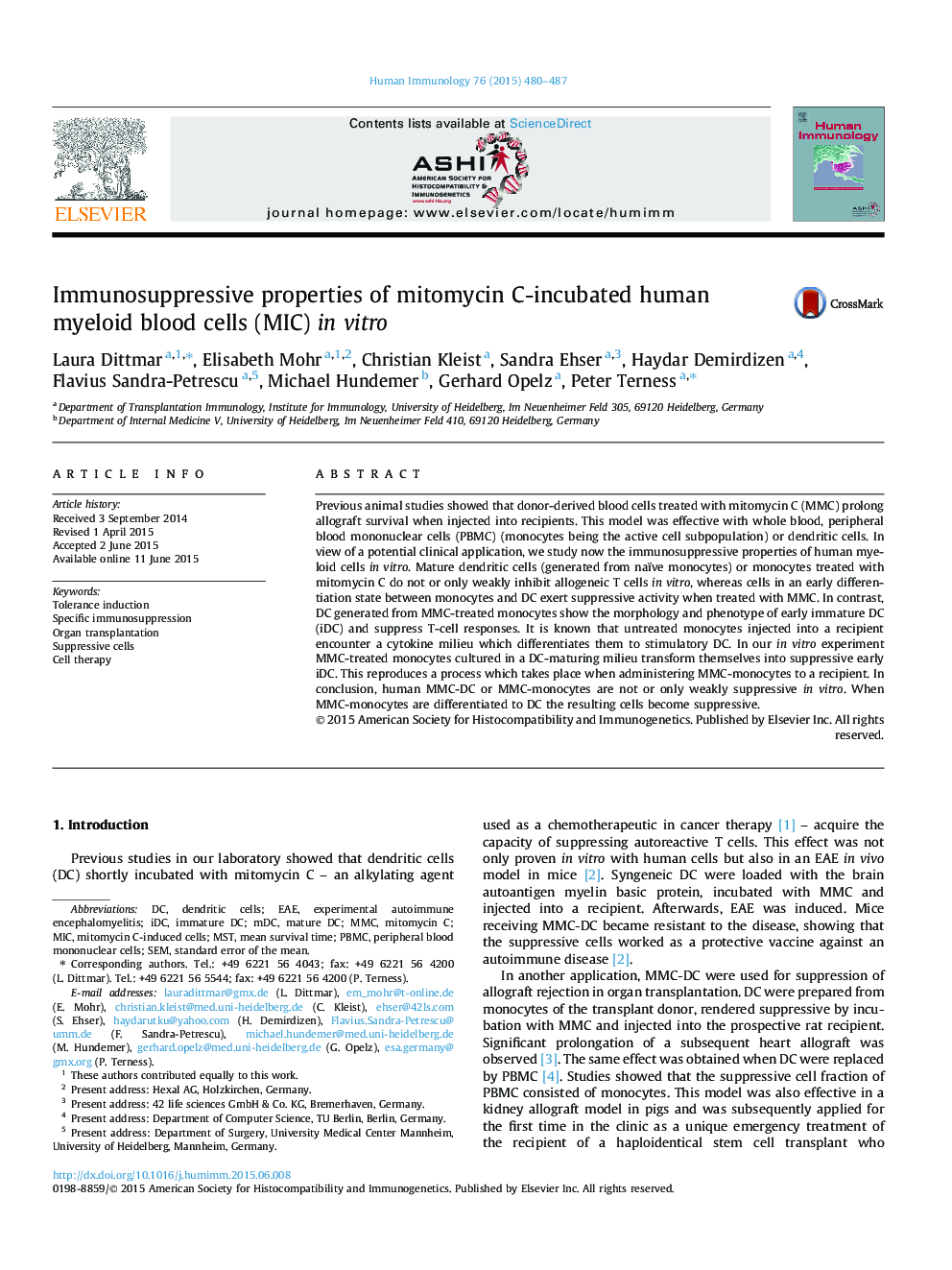| Article ID | Journal | Published Year | Pages | File Type |
|---|---|---|---|---|
| 3349985 | Human Immunology | 2015 | 8 Pages |
Previous animal studies showed that donor-derived blood cells treated with mitomycin C (MMC) prolong allograft survival when injected into recipients. This model was effective with whole blood, peripheral blood mononuclear cells (PBMC) (monocytes being the active cell subpopulation) or dendritic cells. In view of a potential clinical application, we study now the immunosuppressive properties of human myeloid cells in vitro. Mature dendritic cells (generated from naïve monocytes) or monocytes treated with mitomycin C do not or only weakly inhibit allogeneic T cells in vitro, whereas cells in an early differentiation state between monocytes and DC exert suppressive activity when treated with MMC. In contrast, DC generated from MMC-treated monocytes show the morphology and phenotype of early immature DC (iDC) and suppress T-cell responses. It is known that untreated monocytes injected into a recipient encounter a cytokine milieu which differentiates them to stimulatory DC. In our in vitro experiment MMC-treated monocytes cultured in a DC-maturing milieu transform themselves into suppressive early iDC. This reproduces a process which takes place when administering MMC-monocytes to a recipient. In conclusion, human MMC-DC or MMC-monocytes are not or only weakly suppressive in vitro. When MMC-monocytes are differentiated to DC the resulting cells become suppressive.
